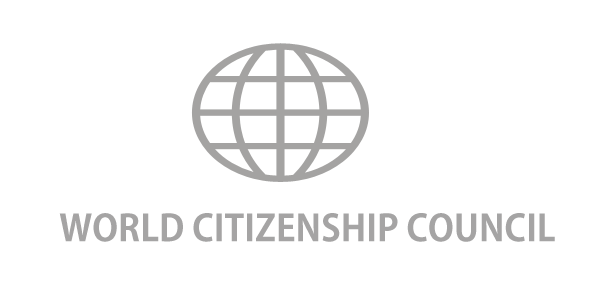Opinion by World Citizenship council
Due diligence is the hallmark of CBI and RBI schemes. The importance of due diligence should never be under estimated by the CBI industry.
Due diligence is not a one-time task. Pre-due diligence and post-due diligence are equally important. Due diligence is the core of the CBI/RBI industry keeping the industry from collapsing.
Peter Vincent, global security, counter-terrorism expert and former high-ranking US government official once said “We are as a group on extraordinarily thin ice, because one bad apple who obtains a second passport or citizenship, who commits a heinous crime despite the vetting that was done, will bring these programs to an absolute collapse,”
The industry has come to significant attacks from the media last year for offering citizenship to high risk applicants, who did get through less stringent vetting by countries.
The five pillars of due diligence process are:
- Know Your Customer (KYC)
- Know Your Customers Customer (KYCC)
- Enhanced Due Diligence (EDD)
- Anti Money Laundering Checks (AML)
- Sanctions and Restricted Countries
It is also essential to check the applicant against criminal databases in the United States for efficient vetting.
Data sharing in Blockchain
Caribbean CIPs must follow Malta’s example on due diligence and vetting of applicants.
The increase in demand for CBI schemes, has become highly essential for Citizenship by Investment units (CIU) to share high risk applicants data with other CIP countries on Blockchain and help countries each other to improve the vetting process.
Due diligence very importantly must also check on any malicious intentions of applicants seeking second passports. This is missed by CIPs.
Prevent future criminals abusing CBI passports
The problem is many dodgy people, think they can acquire CBI passport getting away after passing the first due diligence check done by third parties and governments.
But, how to prevent future criminals who already hold and abuse CBI passport schemes?
Easy! Just do due diligence say once in five years. Cut the passport validity to 5 years and perform due diligence during passport renewal.
This will reveal shady characters abusing CBI schemes. CIUs can Revoke the passports of those who fail vetting.
Biometrics
All countries offering investment based visas, residency and citizenship must collect fingerprint and collect biometric features and share it with other countries to improve vetting.
Canada recently announced they will collect biometrics for visas and permanent residence holders. Canada signed arrangements with the U.S., the U.K., Australia and New Zealand in 2009 (High Value Data Sharing Protocol), allowing for the exchange of a limited number of fingerprint records in an effort to counter fraud and reduce the abuse of our respective immigration programs.
No due diligence system is 100% perfect and secure. It is possible one or two could get away with the system.
The citizenship and residency schemes in Europe and Caribbean are not the only ones facing the issue. The US EB-5 has witnessed significant amount of fraud, and in United Kingdom, the Home Office recently said they will open up investigations on 700 rich russian oligarchs who obtained investor visas.
Residency
Enforcing residency requirement, a minimum of six months, before granting citizenship, will prove strong ties to the country. This will drive away criminals who apply to “Quick to get CBI-passport” with malicious intentions.
CIUs must take their own time to complete the due diligence process and should not rush to complete the process. The normal estimated time to to complete due diligence report on applicant and family is 3-6 months.
All in the passport must not be handed over in no less than 12 months (one year).
Malta and Cyprus have enforced residency requirements. Antigua is the only country among Caribbean CIPs requiring 5 day residency requirement, not when applying, only when renewing the passport after five years. They say “Sometimes taking things slow is better”.
Visa waiver agreements
High risk applicants, if given passport, endanger the visa waiver agreements. Canada revoked visa waiver agreements of St Kitts and Antigua citing concerns with the citizenship schemes.
In 2018 Canadian PM Trudeau clearly said “We have pretty high expectations of countries that do not require visas to come to Canada. We will always ensure Canadians stay protected and if countries like Antigua and Barbuda make the significant improvements and changes necessary to their programmes, we could then look at lifting the visa requirements. I’m just not going to compromise Canadian security.”
Machine learning on Big data
The machine learning algorithms predict the risk score of the applicant, when the applicants data is fed into the model. The more the data the fed in to machine learning algorithms (Neural Networks, Random forests, KNN, Naive Bayes), the better the prediction rate. The more variance in data, higher the prediction rate. The prediction rate can reach above 95% depending on the applicants profile.
High dimensionality data such as images can be fed into the deep learning system for facial features which can be used to compare with other databases and compute risk.
ML algorithms search extremely large data sets (big data) that may be analysed computationally to reveal patterns, trends, and associations including social media. All data must be pre-processed and dimensionality must be reduced before being fed into risk matrix.
Malta’s IIP risk matrix is one great example. Malta developed the first CBI risk matrix to mitigate all the risks associated with CBI applications. IIP’s risk matrix consists of five levels of risk, across seven categories.
e-Passports
All countries running CBI schemes must upgrade to e-passports using latest technologies which include biometrics. In the future all countries who issue passports will be on a blockchain for effective validation. Blockchain will prevent fake passports and duplicate ones. Biometric features prevent impersonation.
According to Gemalto, virtual passports to emerge, expecting rapid growth in digital travel credentials. The data from the ePassport is stored on the holder’s smartphone or similar personal device to create a secure companion to the physical passport for travellers. .
A new generation of electronic passport will soon digitally store travel information such as eVisas and entry/exit stamps to support even more efficient immigration control. With LDS2 (logical data structure version 2) the new generation of electronic passport to come will move from read only to read and write.
We believe by significantly improving due-diligence and vetting standards will bring a radical change to the CBI industry.
About World Citizenship Council (WCC)

World Citizenship Council (WCC) is a non-profit organization for research, development and promotion of the citizenship/ residency schemes throughout the world. The Council will focus on key areas, such as, due diligence and new technologies such as blockchain and will help countries with these issues.
Other issues such as migration, refugees, taxation and dual citizenship will be on the forefront. The council will organize biggest forums, events and seminars to bring together Governments, Associations and professionals of the CBI/RBI/EB-5 industry together to address migratory issues.
The Council invites the best professionals in the due diligence industry to contribute their skills and knowledge in helping countries running CBI/RBI schemes.





